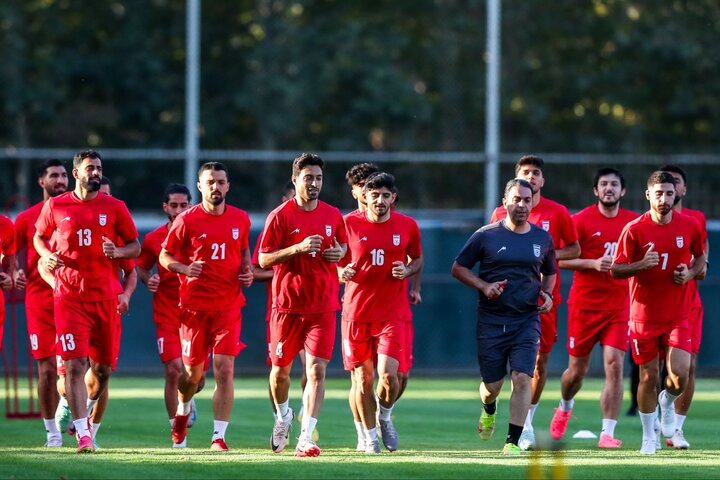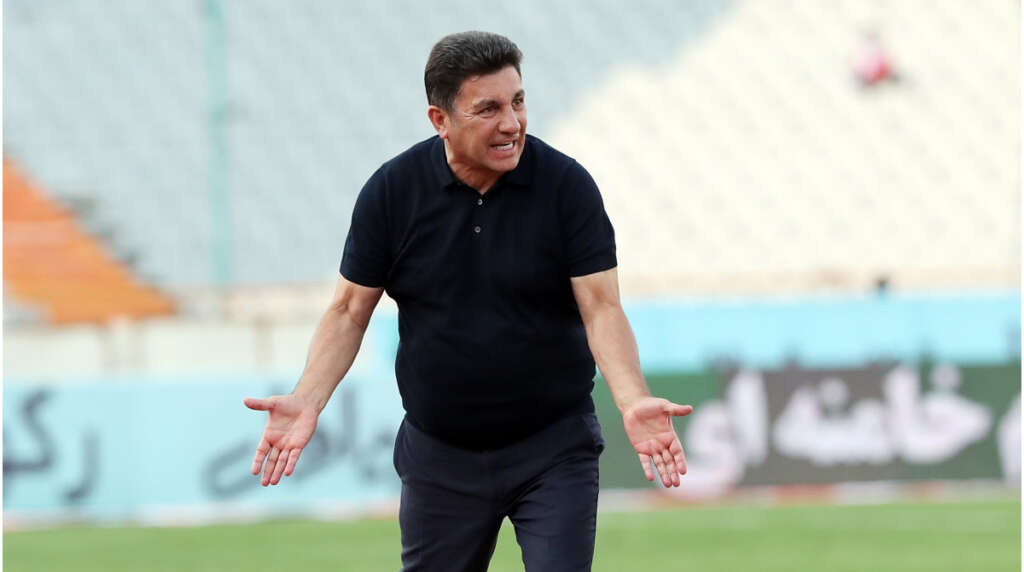Amir Ghalenoei, the head coach of Iran’s national football team, expressed his frustration over the inadequate stadium facilities available for international matches in the country. Speaking at a pre-match press conference ahead of Iran’s game against Kyrgyzstan, Ghalenoei did not hold back in addressing the shortcomings.
“There has been a clear lack of effort and attention to this issue, which has resulted in this unfortunate situation,” Ghalenoei stated. “However, I appreciate the efforts of Zob Ahan Club and its management for preparing Fooladshahr Stadium for this match. Their work has saved us from potential embarrassment.”
Ghalenoei further mentioned that other provinces, despite having larger and more suitable stadiums, refused to cooperate with Team Melli, leaving them with limited options. “Fooladshahr has a decent pitch, but it requires proper maintenance. The turf has an expiration date and should be regularly cared for to remain usable,” he urged.
Analyzing the Opposition
Turning his focus to the upcoming game, Ghalenoei praised Kyrgyzstan’s new head coach for his deep understanding of the nation’s football system, having coached at both grassroots and youth levels. “They are a hardworking team, especially strong defensively,” Ghalenoei remarked, noting that the match would be challenging.
The coach also commended the preparation of his own team, highlighting the success of their training camp. “The conditions have been excellent, and this has been one of the best camps we’ve held. The players are motivated and training with high intensity.”

Balancing Youth and Experience
Ghalenoei acknowledged the ongoing criticism surrounding squad selection, especially regarding the balance between experienced players and younger talents. “Every time we announce a squad, we face criticism. We are working to lower the average age and bring in younger players to support the national team in the future. But these changes must be gradual and measured, ensuring we still get results while protecting the young players’ development.”
He emphasized the importance of careful selection: “Our choices are based on thorough analysis. We’ve been watching the players throughout the league, and while mistakes can happen, our process is transparent. The national team is open to everyone.”
For Ghalenoei, age is just a number. “It’s about quality and readiness. Our goal is to field a team that can combine youthfulness with strong performances. If we don’t get results, the same people who ask for rejuvenation will criticize us for not winning. So, we remain focused on our work and welcome constructive criticism, which helps us improve. Some of our critics are our own advisors.”
An Offensive Football Philosophy
Ghalenoei reaffirmed his commitment to an aggressive, offensive style of play. “Systems don’t win matches; players do. My approach is to play attacking football. My teams have a strong scoring record, and we will maintain this style, even if it costs us a result tomorrow. I can’t change my philosophy because it’s what the fans want to see. I’m here to serve the national team, and the players understand that we have to play a dynamic, spectator-friendly game.”
He also spoke highly of Mehdi Taremi, stating, “We’ve given Taremi the freedom to move across the field, supported by another striker. The players know exactly what’s expected of them.”
He also spoke about the leadership role that experienced players like Taremi play on the field, describing them as the “arm of the coaching staff” who help manage the team during matches. “We don’t expect anything extraordinary from Taremi. We just want him to be himself.”
Reflecting on Challenges
Ghalenoei touched on the challenges faced by the national team, including the strength of teams from the CAFFA region and the high expectations of Iranian fans. “If the players don’t give their best, I will hold them accountable. We’re here to bring joy to the people.”
He recalled a past experience to illustrate the dedication he expects from his players: “I remember when Ali Daei got injured during a match against Bahrain. I was the first person by his side, and he played 70 minutes with that injury. That’s the level of commitment I expect.”
Venue and Federation Challenges
Regarding the choice of venues, Ghalenoei admitted that some of the options for hosting matches were less than ideal, while there were better options “We could have played in better stadiums, but we had to make do with what was available from the people who welcomed Team Melli.”
Despite the difficulties faced, including the fact that the coaching staff have not been paid for months, Ghalenoei remained optimistic. “Our priority is the people. When they’re facing hardships, it’s not right for us to worry about our own financial issues. The Federation and management are doing their best, and so are we. The people’s happiness is what truly matters.”

